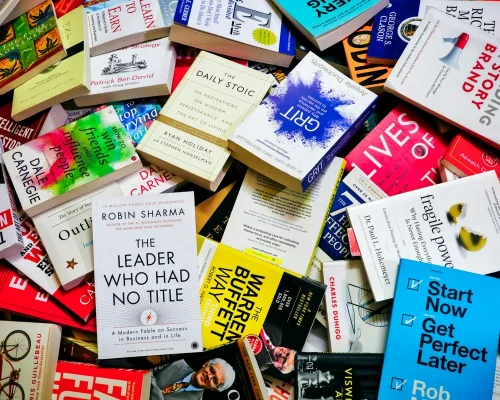Do you ever stare at a blank page, willing a masterpiece into existence, only to see… nothing?
You fumble for the perfect word, the right sentence structure, and anything to jumpstart your brilliance. But frustration sets in, and that once-promising idea evaporates faster than a Twitter trend.
We’ve all been there. The truth is, even the most seasoned writers grapple with some bad writing habits that lurk in the shadows, sabotaging our best efforts.
But what if a few tweaks could transform your writing from “meh” to “wow”?
Let’s dive into the 7 bad writing habits you have to ditch today to truly be an exceptional writer.
Editing as You Write
Ah, the siren song of the backspace button. We all know that feeling – the urge to fix every awkward phrase, every grammatical hiccup the moment it appears on the screen. But this constant self-editing is a productivity black hole and it’s top on my list of bad writing habits. You end up rewriting the same sentence over and over, second-guessing every word choice while the rest of your document remains a barren wasteland.
The Fix: Think of your first draft as a messy but enthusiastic first date. Get your ideas down, capture the flow, and worry about polishing later. Trust yourself – the magic often happens in the messy middle.
Waiting for Perfect Inspiration
We’ve all been there: waiting for that bolt of lightning to strike, that moment of pure inspiration where the entire piece reveals itself in a glorious flash. But let’s be honest, that kind of inspiration usually arrives right before a deadline, fueled by a potent blend of panic and stale coffee. Surely, you know this is a bad writing habit.
The Fix: Inspiration is a fickle friend, but there’s a more reliable muse: simply starting. Start with a sliver of an idea, a single sentence, even. Often, the act of writing itself jumpstarts the creative process, leading you down paths you never expected.
Excessive Procrastination (The Master of Avoidance)
The deadline looms, a dark cloud on the horizon. You know you should be writing, but suddenly that overflowing inbox seems much more appealing, or maybe cleaning out your sock drawer takes on epic importance. Maybe you even convince yourself that the Netflix binge-watching session is essential “research” for your project. There’s a name for that – procrastination in disguise and it’s the enemy of all good writers.
The Fix: Outsmart the procrastination monster with bite-sized goals. Break your writing into pomodoros. Set a timer for 15 minutes and commit to writing anything – a freewriting exercise, an outline, even a grocery list. Often, once you get started, the momentum carries you forward.
Taking Long Breaks without a Plan
Sometimes, life happens. Unexpected interruptions, creative slumps, or just plain exhaustion can derail your writing routine. While taking breaks is crucial for long-term productivity, disappearing entirely can make it incredibly difficult to regain your flow.
The Fix: When you have to step away, leave yourself breadcrumbs. Jot down a quick note about where you left off, your next idea, or even a question you were trying to answer. It makes picking up where you left off far less intimidating.
Overreliance on Grammar Checkers (The AI Trap)
Yes, grammar checkers are fantastic tools. They can catch those pesky typos and awkward wording that you might miss on your own. However, relying solely on these automated assistants can become a crutch, hindering your development of a solid grammar foundation.
The Fix: Grammar checkers are your safety net, not your substitute teacher. Actively study common grammar rules and practice identifying errors in your work. Over time, you’ll spot mistakes instinctively and your dependence on technology will decrease.
Plagiarism (The Originality Thief)
Another bad writing habit is copying others’ work – intentionally or accidentally. This is a serious offence. Aside from the ethical implications (and potential legal trouble), plagiarism robs you of your unique voice and stifles your growth as a writer.
The Fix: Meticulous citations are your best friend. Always give credit where it’s due. When incorporating others’ ideas, paraphrase carefully and be 100% sure you’re expressing them in your own words. If in doubt, err on the side of over-citing.
Failing to Read Widely
You start to stagnate as a writer once you stop reading. Reading isn’t just a pleasant pastime for writers – it’s essential fuel for your creativity. Immersing yourself in different writing styles, genres, and voices expands your vocabulary, exposes you to new forms of storytelling, and challenges your assumptions.
The Fix: Make reading a habit, and diversify your bookshelf! Venture outside your usual comfort zone – try some poetry, explore historical non-fiction, or even pick up a classic you somehow missed in school. You’ll be surprised how quickly your writing reflects the richness you absorb.
The Journey to Better Writing Habits Starts Now
Bad writing habits are insidious little creatures, easy to overlook but oh-so-powerful in their ability to sabotage our best work. But now that you’re armed with this knowledge, you have the power to break free. The next time you sit down to write, pay attention to these pitfalls. Even small adjustments can yield big results.
So, here’s your challenge: which of these bad writing habits will you start tackling TODAY? Just pick one, focus on it, and celebrate every small victory. Remember, progress is more important than perfection.
Let’s start a conversation! Share your biggest writing struggles in the comments, or the writing habit you’re most determined to break… and together, we’ll create writing that shines.

